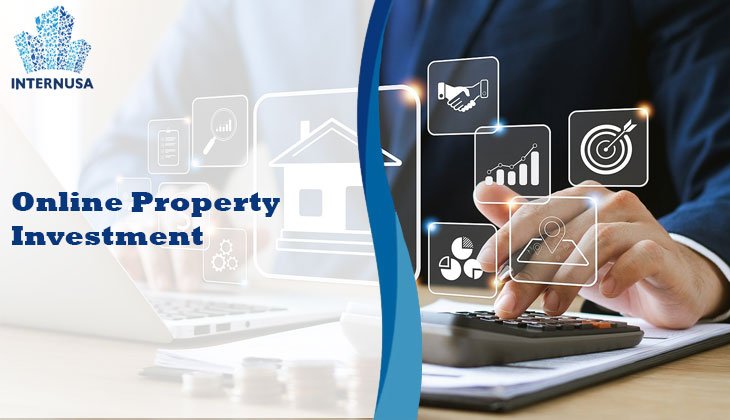Online Property Investment: A Modern Path to Real Estate Wealth
In today’s digital era, almost every industry has embraced the internet to streamline processes, improve efficiency, and expand reach. Real estate is no exception. Online property investment has emerged as a powerful trend, allowing individuals to invest in real estate assets fromthe comfort of their homes. With just a smartphone or laptop, investors can now explore opportunities, analyze markets, and purchase or fund property investments without ever stepping into a real estate office.
This article explores what online property investment is, its advantages and risks, popular platforms, and how to get started wisely.
What is Online Property Investment?
Online property investment refers to the process of purchasing, funding, or trading real estate assets through digital platforms. These platforms may involve direct ownership (e.g., buying rental properties) or indirect ownership (e.g., investing in real estate crowdfunding, REITs, or tokenized assets).
Unlike traditional property investment, which often requires large capital, extensive documentation, and in-person interactions, online real estate investment simplifies the process. It opens the door for small investors to diversify their portfolios with real estate, often with as little as a few hundred dollars.
Key Benefits of Online Property Investment
1. Accessibility
Digital platforms democratize real estate investing by lowering barriers. You don’t need to be a millionaire or a property expert to get started. Anyone with internet access and some savings can explore investment opportunities.
2. Diversification
Many online platforms allow you to invest in multiple properties across different cities or countries. This geographical and asset-class diversification can help reduce risk and increase returns.
3. Transparency and Data
With online investment platforms, all relevant property data—such as market analysis, projected returns, location trends, and legal documents—are readily accessible. This transparency empowers investors to make more informed decisions.
4. Passive Income Potential
Several platforms offer income-generating investments. For example, rental properties or development projects may pay out dividends or interest, giving investors regular cash flow.
5. Lower Fees
Online platforms often reduce the need for middlemen like brokers and agents. As a result, fees and commissions are typically lower than traditional real estate deals.
Types of Online Property Investment
A. Real Estate Crowdfunding
Crowdfunding platforms pool funds from multiple investors to finance a single property or real estate project. Investors receive returns based on rental income or appreciation once the project is sold.
Examples: Fundrise, RealtyMogul, EstateGuru
B. Real Estate Investment Trusts (REITs)
REITs are companies that own and manage income-producing real estate. Online brokers now allow investors to buy REIT shares just like stocks. REITs offer liquidity and regular dividends.
Examples: Publicly traded REITs via platforms like Robinhood or eToro.
C. Tokenized Real Estate
Blockchain technology allows properties to be split into digital tokens. Investors can buy and trade these tokens, representing partial ownership in a property. This is a newer but fast-growing method in the online property sector.
Examples: RealT, Lofty AI
How to Start Investing in Property Online
1. Define Your Investment Goals
Ask yourself: Are you looking for passive income, capital appreciation, or portfolio diversification? Your goal will determine which platform and property type best suit you.
2. Research Platforms
Not all platforms are created equal. Look for trustworthy, licensed, and well-reviewed platforms. Review their investment minimums, returns history, fees, and transparency.
3. Start Small
Beginners should start with small investments while learning the process. Real estate crowdfunding and REITs are ideal starting points due to their low entry thresholds.
4. Evaluate the Risk
Even though real estate is considered a stable investment, it’s not without risk. Market fluctuations, tenant defaults, and platform failure can impact your returns. Always read the terms, disclosures, and risk statements.
5. Monitor and Reinvest
Track your portfolio regularly. Some platforms offer reinvestment features or let you withdraw dividends. Stay updated with market trends and adjust your strategy as needed.
Risks of Online Property Investment
Platform Risk: If the company managing your investment fails or is hacked, your capital could be lost.
Liquidity Risk: Unlike stocks, many property investments can’t be sold quickly.
Market Risk: Property values and rental incomes are influenced by economic cycles.
Regulatory Risk: Different countries have different laws about crowdfunding and real estate ownership, especially for foreigners.
Popular Platforms to Consider (2025)
Fundrise (US) – Long-term portfolio building with eREITs.
RealT (Global) – Tokenized rental properties.
EstateGuru (Europe) – Property-backed loans.
Lofty AI (US) – Daily rental income via tokenized real estate.
BrickX (Australia) – Fractional property investment.
Always ensure the platform is regulated by the financial authorities in its country of operation.
Who Should Consider Online Property Investment?
Young professionals looking to grow wealth with limited capital.
Remote investors who want to access foreign markets.
Retirees seeking passive income with better returns than savings accounts.
Diversified investors balancing stocks, crypto, and real estate.
Digital-savvy individuals comfortable with online financial tools.
Online property investment has revolutionized how we invest in real estate. By reducing entry barriers, increasing transparency, and offering flexibility, it has opened doors for millions of everyday investors. However, like any investment, it requires education, strategy, and due diligence.
As more platforms emerge and blockchain adoption continues, the future of real estate investment is increasingly digital, global, and accessible.





